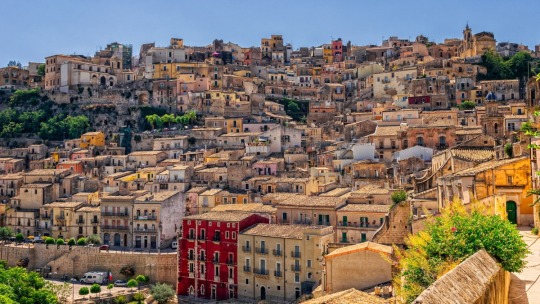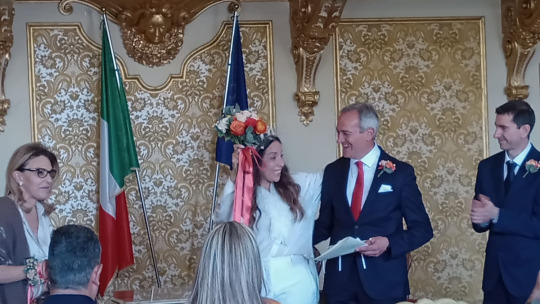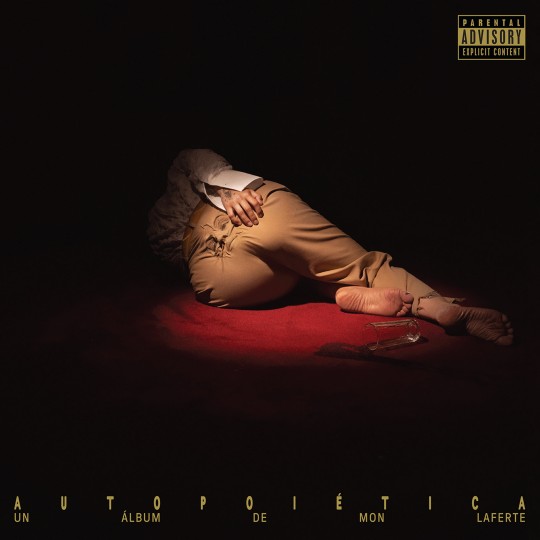#casta diva norma vincenzo bellini
Explore tagged Tumblr posts
Text
La poesia di Promessa di Matrimonio di Francesco Nigri ad Hebe Munoz
La poesia di Promessa di Matrimonio di Francesco Nigri ad Hebe Munoz Perchè tu sei il miracolo del sempre .. Sono rinato così tante volteche conosco la paura ultimaquella dell’acqua sorgivache teme il fontarsil’affievolirsi del ricciolo all’arialo scorrersi dell’ultimosarò fresca d’artesia ancorasarò limpida del pelo libero delle goccesarò gustosa ancora del puroo tutto finirà così d’un salto…

View On WordPress
#accademia della lingua venezuelana#acqua carzeto#adeguamento non significa abbandono bensì discernimento del buono e bello#adeguamento poesia alla contemporaneità#alma llanera inno popolare venezuelano#approdo dinamico metrica poesia#artesia#autenticità del poetare del versarsi#bell amare#belle poesie d amore#bellissime poesie d amore#capoversi maiuscole a capo doppi a capo#casta diva norma vincenzo bellini#celebrato matrimonio tra poetessa italovenezuelana hebe munoz e poeta italiano Francesco Nigri#contemporaneità non significa cedimento ma co evoluzione#cosmica poesia facebook page#desiderio di contemporaneità#discontinuità sillabe estetica non forzata non ricercata grazia passione per la vita l amare l essere l essersi poesia#ebe divinità giovinezza#ebe mitologia#emozione#evolversi musicalità linguaggi#frasi poesie d amore#giornalista scrittore josè pulido#giovinezza acqua#I poeti Hebe Munoz e Francesco Nigri sposi: il libro di poesie del loro amore IL SEGRETO DI EBE proposto da Albatros Il Filo al Premio Streg#il segreto di ebe albatros il filo libro poesie d amore premio strega poesia#inclinaziona agli accenti#la più bella poesia d amore#La poesia di Promessa di Matrimonio di Francesco Nigri ad Hebe Munoz : il libro di poesie del loro amore IL SEGRETO DI EBE proposto da Albat
1 note
·
View note
Text
Grace Moore sings Casta Diva from Bellini's opera Norma. From A Lady's Morals movie.
Remembering Grace Moore on her birthday:
b. December 5, 1898, Del Rio, Tennessee d. January 26, 1947, Copenhagen, Denmark
#classical music#opera#music history#bel canto#composer#classical composer#aria#classical studies#maestro#chest voice#Casta Diva#Norma#A Lady's Morals#Bellini#Vincenzo Bellini#Grace Moore#Moore#lyric soprano#soprano#Tennessee Nightingale#The Nightingale#Metropolitan Opera#Met#Opéra-Comique#Covent Garden#Royal Opera House#classical musician#classical musicians#classical voice#classical art
9 notes
·
View notes
Text
Sicily
https://on.soundcloud.com/zsEoRr2fHVyXaunn7 Sicily is the largest and most populous island in the Mediterranean Sea. It has a picturesque coastline and historic towns, and offers beaches, mountains, active volcanoes, and even skiing in winter. It produces wine, almonds, pistachios, olives, citrus, and seafood but also has a rich culture in arts, music, literature, cuisine, and architecture. In…

View On WordPress
#Alessandro Scarlatti#bell&039;Antonio#Berliner Philharmoniker#Casta Diva#classical#Classical Music#Claudio Abbado#composers#Dorothee Oberlinger#Ensemble 1700#Francesco Buzzaro#Fuego#Giuseppe Verdi#Il Giardino d&039;Amore#iovanni Sollima#Kathryn Stott#London Philharmonic Orchestra#Music#Norma#opera#Paul Archibald#Renée Fleming#RTHK Radio 3#Sicilian Vespers Overture#Sir Charles Mackerras#Tema III#Vincenzo Bellini#Yo-Yo Ma
0 notes
Text

Tanti auguri alla DIVINA❤️.
Non ho nient’altro da aggiungere, la tua voce, le tue espressioni, parlano già tanto…
Eri, sei e rimarrai sempre viva
5 notes
·
View notes
Text
DANILO REA_OPERA IN JAZZ
Per rendere “simpatico” il jazz al grande pubblico non c’è strada migliore che cercare di renderlo digeribile con ibridazioni e ammiccamenti con i ritmi della grande musica popolare. Operazioni simili si sono già viste alla televisione, per esempio per la danza, basta ricordare le trasmissioni televisive di Roberto Bolle che si è prestato a questa operazione di grande divulgazione (e quindi forse anche Andrea Bocelli andrebbe ascritto ai grandi divulgatori in campo musicale per la lirica). Un’operazione simile con il jazz la fa Danilo Rea che a JazzMI ha presentato, sabato scorso al Teatro della Triennale di Milano (ex-Teatro dell’arte), “Opera in jazz”, operazione piuttosto compressa, volta a portare il jazz a dialogare con i grandi interpreti del passato della lirica italiana. Pezzi ed arie celeberrime dell’opera lirica sono rielaborate al pianoforte in chiave jazzistica, mentre su uno schermo scorrono immagini, fotografie e filmati storici degli interpreti dell’opera. Si incomincia con una “Casta diva” nella memorabile e irraggiungibile interpretazione di Maria Callas da “Norma” di Vincenzo, Bellini, si prosegue con “Una furtiva lagrima” dall’ “Elisir d’amore” di Gaetano Donizetti, cantata da Enrico Caruso, e via via fino ad arie meno consumate dall’uso, ma sempre di grande impatto, concludendo, per il bis, con la canzone italiana per eccellenza, ovvero quel “O sole mio” di Alfredo Mazzucchi e Eduardo Di Capua, celebrata, cantata e ricantata in tutto il mondo con una impennata di celebrità in questo nuovo millennio. E il jazz? Bisogna riconoscere che, nonostante queste operazioni siano sempre un po’ rischiose, il risultato è assolutamente pregevole, date anche le capacità tecniche di prim’ordine di Danilo Rea. Non era facile, come lo stesso Rea ha ricordato dal palco al folto pubblico, dialogare con un cantante o una cantante che in realtà non ti ascolta, la cui voce, anzi la cui registrazione monofonica della voce, proviene dalla notte dei tempi della musica riprodotta. Rea riesce eccellentemente nell’operazione, tanto che qualche aria sembra continuare naturalmente nella sua tastiera poliedrica. Se qualche dubbio resta, almeno a me, è il senso generale dell’operazione, come se il jazz non bastasse a sé stesso e altrettanto vale per l’opera lirica. Ma io oltre a non fare testo, sono sempre un po’ troppo esigente e un po’ troppo rigoroso, anche con me stesso, e queste “scampagnate musicali” mi sembrano sempre un po’ delle operazioni azzardate. Quelle che invece sembrano proprio di difficile digestione, sono le immagini proiettate sullo schermo, di una bruttezza e di un cattivo gusto esemplari: elaborazioni elettroniche di rose che fioriscono, fiocchi di neve da centro commerciale, bolle, riflessi, ombre e tramonti napoletani degni di una pizzeria. Forse, se proprio necessario, sarebbe bastato proiettare le rare immagini della Callas, di Beniamino Gigli, di Mario del Monaco o di Mascagni, Rossini e Puccini nel loro originale e fascinosissimo b/n. Spero soltanto che il Roberto Grossi che ha curato la parte video della serata, non sia lo stesso Roberto Grossi, ex studente nella mia stessa scuola e scenografo di mia conoscenza, perché sarebbe la fine di una amicizia…

3 notes
·
View notes
Text
Price: [price_with_discount] (as of [price_update_date] - Details) [ad_1] Vincent and the Givnology Charmony Division team have combined over half a century of expert experience in performing, composing, arranging and teaching. From this comes practical tips and techniques for a diverse array of musical and cultural uses. World Music Class is a very extensive all-in-one primer, history, reference and songbook for a wide variety of music.Includes:Resolmilafatimila (Form Figure No. 1), Pattern, Chords & Analysis, 3 staves. World Music Mastery, Patterns for playing with anyone, Piano, Chords, Guitar Fret-boards & Analysis, 1 page.Latin Piano (Montuno) 101, C I-IV-V-IV major & minor (with I-ii-V-ii variation), 2 staves.Montuno Circles Makes Blues Scale, Piano, Chords & Analysis, 2 staves.Yorùbá Diasporas, Flowery Salsa & Rumba Parts, Piano, Chords & Afro-Caribbean Rumba Percussion Rhythmic Diagram, 5 pages. Calypso Study in Soca (Soul-Calypso), Piano, Soloist, Chords, Guitar Fret-boards & Calypso Rhythmic Diagram, 1 page.Yemaya Orisha Ocean Goddess, Sacred Song Piano Solo, 3 pages.Montuno Etude #1, Piano Solo, 1 page.Swing Montuno, Advanced Stylistic Fusion, Piano, Chords & Bembe Percussion Roles Rhythmic Diagram, 2 pages.Montuno Etude #2, C Major I-VI-ii-V, Piano Solo, 1 page. Calypso Circles (Guitar Chucks), Piano and Chords, 1 page. Soca Clav (Soul-Calypso Keyboard Chuck), Keyboard, 3 staves. Super Clavinet Technique, Keyboard, Chords and Guitar Fret-boards, 1 page. Affirmatinas: Everything's Going Perfectly Now & Ever More, Piano, Vocal, Guitar Chord Fret-board, 1 stave.Having What I'm Wanting, Wanting What I'm Having, Piano, Vocal, Chords & Guitar Fret-boards, 3 staves.Bossanova Study/Etude: Lost In Love, Piano, Vocals, Chords. 2 pages. Affirmatina Song "My Successes Are Here," Piano, Lyrics and Chords, 2 pages. Classical Derivative Affirmatina #1, "I Manifest My Destiny," Piano and Vocals, 1 page. #2, "Chopin Made A Way," Piano and Vocals, 1 page. #3, "Let It Be's" (Liebestraum), Piano and Vocals, 2 staves. Chamber Concertoo in D Major, RV 93, Antonio Vivaldi, Piano, Chords and Guitar Fret-boards, 2 pages. Che Farò Senza Euridice?, Christoph Willibald Gluck, theme reduction to Piano Solo, 1 page.L'Inferno (Winter) from The 4 Seasons, Antonio Vivaldi, Piano, Chords and Guitar Fret-boards, 1 page.Il Trionfo del Tempo e del Disanganno (The Triumph of Truth & Time) "Lascia la spina..", George Frederic Handel, Piano, Vocals, Chords & Cello, 2 pages. Les Baricades Misterieuses, by Francois Couperin, Piano Solo, 2 pages. Gelido in Ogni Vena, from Farnace by Antonio Vivaldi, Piano, Chords & Vocals, 3 pages. Song To The Moon, from Rusalka, by Antonin Dvorak, Piano and Chords, 1 page. Clarinet Concerto in A Major, the Adagio, by Wolfgang Amadeus Mozart, Piano Solo, 2 pages. Laudate Dominum, Wolfgang Amadeus Mozart, Piano, Latin Lyrics and Chords, 3 pages. The Magic Flute, The Priest's Aria, Piano, Lyrics and Chords, 1 page.Ave Maria (Ellens Gesang for Sir Walter Scott poems), Franz Schubert, Piano, Latin Vocals and Chords, 2 pages. Casta Diva from Norma, by Vincenzo Bellini, Piano, Vocals and Chords, 2 pages. Andante Moderato from Symphony #9, by Ludwig Van Beethoven, Piano Solo, 1 page. Adagio from Symphony #1, by Georges Bizet, Piano Solo, 1 page. Romeo and Juliet Overture, Pyotr Tchaikovsky, Piano Solo, 1 page.Andalucia, by Ernesto Lecuona, Piano and Chords, 1 page. Carmen's Habanera by Bizet (Adapted to teach percussion), Vocals, Chords, Guitar Fret-boards, Claves and Percussion, 2 pages.Yemaya & Santa Lucia by Capua (Adapted to teach percussion), Yórùbá, Italian and English Vocals, Chords, Guitar Fret-boards, Agogo and Percussion, 2 pages.Fun and enlightening stories and backgrounds are included to keep the reader inspired and appreciating what the master have left for us. Information about world music cultures leaves us more aware of the environments and beliefs that the music arises from.
Publisher : Createspace Independent Pub (20 February 2014) Language : English Paperback : 110 pages ISBN-10 : 1495987892 ISBN-13 : 978-1495987892 Item Weight : 177 g Dimensions : 15.24 x 0.74 x 22.86 cm [ad_2]
0 notes
Text
Happy birthday Vincenzo Bellini
0 notes
Text
0 notes
Text
31/12/23 - "Concerto di fine anno 2023" - G.Cilona, dir. - G.Gianfaldoni, sop. - A.Nadin, mezzosop.- M.Ciaponi, ten.-P.Longo, m° del Coro - Orch. e Coro Fond. Teatro Lirico "G.Verdi" - Teatro Lirico "G.Verdi" - Trieste
Vi informiamo che domenica 31/12/23, ore 18.00, presso Teatro Lirico “G.Verdi” – Trieste, vi sarà l’esecuzione del “Concerto di fine anno 2023” – G.Cilona, direttore. dettagli 2 ore circa Programma Gioachino Rossini Pas de trois – Choeur tyrolien da Guillaume Tell Gaetano Donizetti Ah, mes amis! da La fille du règiment Vincenzo Bellini Casta Diva da Norma Vincenzo…

View On WordPress
0 notes
Text
I poeti Hebe Munoz e Francesco Nigri sposi
I poeti Hebe Munoz e Francesco Nigri sposi È stato celebrato il 22 aprile 2023 il matrimonio tra la poetessa italovenezuelana Hebe Munoz ed il poeta italiano Francesco Nigri. L’evento si è svolto presso la bellissima Sala del Ridotto del Teatro Magnani di Fidenza ed è stato celebrato dalla Prof.ssa Maria Pia Bariggi, Assessore alla Cultura del Comune di Fidenza. Il Maestro Luca Pollastri ha…

View On WordPress
#adeguamento non significa abbandono bensì discernimento del buono e bello#adeguamento poesia alla contemporaneità#alma llanera inno popolare venezuelano#approdo dinamico metrica poesia#autenticità del poetare del versarsi#belle poesie d amore#bellissime poesie d amore#capoversi maiuscole a capo doppi a capo#casta diva norma vincenzo bellini#celebrato matrimonio tra poetessa italovenezuelana hebe munoz e poeta italiano Francesco Nigri#contemporaneità non significa cedimento ma co evoluzione#cosmica poesia facebook page#desiderio di contemporaneità#discontinuità sillabe estetica non forzata non ricercata grazia passione per la vita l amare l essere l essersi poesia#ebe divinità giovinezza#ebe mitologia#endecasillabi#evolversi musicalità linguaggi#frasi poesie d amore#giornalista scrittore josè pulido#I poeti Hebe Munoz e Francesco Nigri sposi: il libro di poesie del loro amore IL SEGRETO DI EBE proposto da Albatros Il Filo al Premio Streg#il segreto di ebe albatros il filo libro poesie d amore premio strega poesia#inclinaziona agli accenti#la più bella poesia d amore#La poesia nel Metaverso | Francesco Nigri poeta e autore del libro di poesie IL SEGRETO DI EBE Edizioni Albatros Il Filo#lasciare libera l oralità interiorità della declamazione lettura a compenetrazione riflessione confronto#le piu belle poesie d amore#libri di poesie d amore#libro libri poesie d amore#libro per riscaldare il cuore
1 note
·
View note
Text
Soprano Maria Pedrini - Norma "Casta Diva" (Scena, Aria e Cabaletta) Live 1952
She studied at the Accademia di Santa Cecilia in Rome with Edvige Ghibaudo, and made her debut in November 1931 at the Teatro Adriano in Rome as Elena in Boito's "Mefistofele". At the Opera of Rome she appeared as Mozart's Countess in 1934. In 1936 she sang in the premiere of Malipiero's "Giulio Cesare". Her La Scala debut took place in 1939 as Fattoumah in Rabaud's "Marouf" and in 1946 she sang at La Scala in the first stage performance after the Second World War as Abigaile. In 1953 at the Opera of Rome she sang in the world premiere of "Medea" by Canonica Her repertoire included Aida, Amelia in "Un Ballo in Maschera",Elvira in "Ernani", Elena in "I Vespri Siciliani", the Trovatore and Forza Leonora, Elisabetta in "Don Carlos", Desdemona, Norma,Beatrice di Tenda, Paolina in "Poliuto", Lucrezia Borgia, Rossini's Mathilde and Amaltea / Sinaide in "Mosè in Egitto", Tosca, Gioconda, Maddalena, Asteria in Boito's "Nerone", Refice's "Cecilia", Chrysotemis,and Elisabeth in Tannhäuser. She retired from the stage early in 1957. She is certainly of those who should be classified as a dramatic soprano with agility.
#classical music#opera#music history#bel canto#composer#classical composer#aria#classical studies#maestro#chest voice#Vincenzo Bellini#Norma#Casta Diva#Maria Pedrini#soprano#dramatic soprano#classical musician#classical musicians#history of music#historian of music#musician#musicians#diva#prima donna#La Scala
3 notes
·
View notes
Text
MON LAFERTE LANZÓ SU NUEVO ÁLBUM: "AUTOPOIÉTICA"
El octavo disco de la compositora, productora y artista visual Mon Laferte ya está aquí. Y se trata de un universo plagado de sus obsesiones musicales, que nos permiten conocerla desde otras perspectivas, a partir de dos elementos que sirven de hilo conductor: la reinvención y la libertad creativa.

Llegó “Autopoiética” y con él, una nueva forma de leer y escuchar a Mon Laferte. Un disco compuesto por catorce canciones que la propia artista ha definido como uno mucho más reflexivo que sus trabajos anteriores y en el que experimentó con nuevas herramientas, creando sus temas a partir de bases rítmicas o samples, volviendo así a la esencia más alternativa de los primeros años de su carrera. Esa valentía, honestidad y libertad que conduce a quien no tiene nada que perder.
El título de su octavo disco viene del concepto de “autopoiesis”, acuñado por los biólogos chilenos Francisco Varela y Humberto Maturana en la década de los setenta para definir el proceso de automantenimiento de las células. “Cuando estaba haciendo este álbum se instaló en mí la palabra autopoiesis y quise llevarla a este trabajo de una manera metafórica”, explica Mon. “Me gusta creer en la idea de un renacimiento constante y convencerme de que, a pesar de las adversidades de la vida, tengo la capacidad de seguir reinventándome, ese es el gran don que todos tenemos”.
En esta misión, Mon decidió además abrazar toda aquella música que la emociona. La que disfruta, “con la que me pasan cosas a nivel corporal, emocional y también la que me hace pensar”, dice. Es por eso que en “Autopoiética” podemos encontrar, entre otras propuestas, una cumbia rebajada en “Te juro que volveré”; trip-hop, mariachi y bolero en “Tenochtitlán”; referencias a la movida del tango electrónico en el interludio “Artículo 123”; un techno crudo en “Autopoiética”; una salsa con todas las de la ley en “Los amantes suicidas” y una reinterpretación impactante de “Casta Diva”, una pieza de la ópera Norma de Vincenzo Bellini, en donde reina precisamente lo mejor de aquel género docto y los guiños al dembow. “Mi idea era mezclar todos los mundos que amo”, dice la artista.
Y realmente cada tema es un mundo propio dentro del universo de “Autopoiética”. Porque además de un despliegue de géneros, Mon nos llena de pequeñas pistas de otras obsesiones, de otros amores, a través del uso de samples, como la aparición de Los Ángeles Negros al cierre de “No+sad”, un sample de un diálogo de la película Hiroshima, mon amour en “40 y MM” y “Mew shiny”, una balada minimalista y experimental con un título que nos hace pensar ¿acaso Mon fantasea con ser maestra Pokémon? El álbum es un paisaje lleno de referencias para seguir conociendo las diferentes capas de una artista compleja que, muchas veces, la maquinaria de la industria y de los tiempos que vivimos, por su velocidad, no permite ver.
“Autopoiética” deja en claro algo muy interesante y es que los procesos creativos y las obras nacen en el momento en que deben nacer. “Antes yo no habría hecho un disco así, definitivamente”, dice Mon. “Siento que estoy en un momento de mayor seguridad en mí, en mi música. Tengo una claridad que quizás antes no tenía. También estoy cada vez teniendo menos prejuicios. Más sabe el diablo por viejo que por diablo, dicen, supongo que algo de eso hay”.
“Autopoiética” se encuentra disponible en todas las plataformas digitales. Escuchalo aquí.
0 notes
Text
In the first half of the 19th century it was more impressive for a soprano to sing low rather than high. Because of this, many singers used to transpose the key of arias down. The most famous example is Casta Diva from Vincenzo Bellini’s opera Norma – Bellini originally wrote it in G major, but Giuditta Pasta (for whom the role of Norma was created) transposed it down to F major, which is the standard key used today.
Classical music side of tumblr what is considered common knowledge or what is information that someone in the classical music community would know
79 notes
·
View notes
Video
youtube
the FULL video of Lisette singing “Casta diva”
12 notes
·
View notes
Video
youtube
Casta Diva - Norma - Montserrat Caballe
14 notes
·
View notes
Video
youtube
Maria Callas, Norma - Casta Diva - Bellini
1954 recording with Orchestra and Chorus of Teatro alla Scala, Milano, conductor Tullio Serafin
19 notes
·
View notes